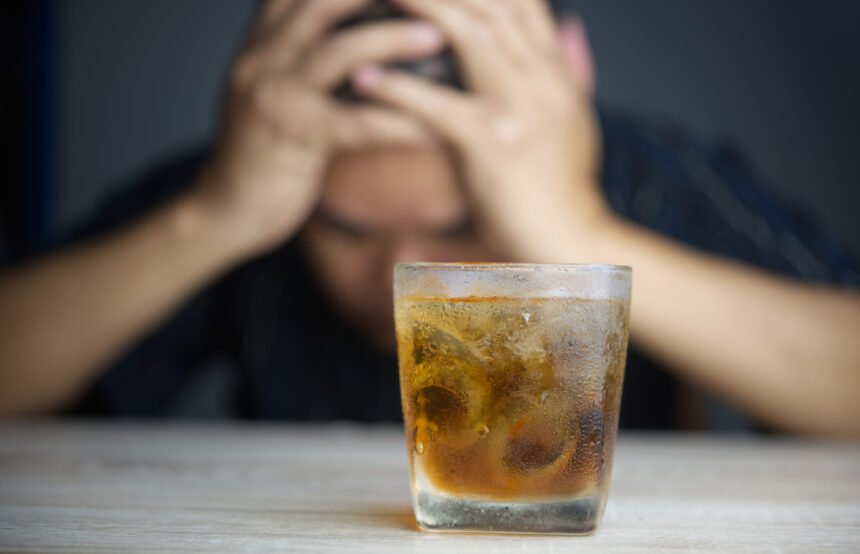An alcohol addiction hotline is an emergency number meant for those people who struggle with alcoholism and can be used to reach out for help during a moment of crisis.
An Alcoholics Anonymous hotline is a toll-free number that will connect you directly to a licensed treatment facility or assist in finding recovery resources. An AA hotline is a handy tool and calling it is the first step to recovery. A person calling the helpline can inquire about treatments, and withdrawal symptoms. He may also seek guidance on how to speak to a loved one struggling with alcoholism or any other issue you might be facing.
Significance of an Alcohol Addiction Hotline
A person is addicted to alcohol when he is compelled to drink it regularly and choosing to drink or not to drink is no longer an option. In such a case, it can seem almost impossible for such a person to quit drinking on his own. The concerned person might be trying to quit but might keep relapsing time and again. Hence, it becomes crucial to seek treatment in such a situation.
An Alcohol Addiction Hotline is the bridge between an alcoholic and his road to recovery. A hotline can be used to connect an individual with a trusted advisor to answer questions about substance abuse. A hotline operates 24 hours a day, 7 days a week.
Addiction hotlines maintain confidentiality and one does not necessarily have to disclose his/her identity. In certain cases, advisors are those individuals who have undergone treatment and have come out victorious themselves. Some of the advisors are usually admissions navigators at American Addiction Centers (AAC). The admissions navigators are available round the clock to discuss treatment procedures and provide a safe and serene space for you to share your experience and issues with substance abuse.
Alcohol.org (a subsidiary of AAC) is committed to helping people find suitable recovery centers while providing insight into the condition. However, one needs to know that helplines are trusted resources, but are not meant to provide emergency care. If someone has been medically or mentally affected due to excessive alcohol intake (such as suicide attempts) then he must call 911 as soon as possible.
When must you call a hotline?
There is nothing wrong with hesitating to call a helpline. However, it is extremely crucial to come to terms with your situation if you have an addiction problem since making a call will be a brave step towards regaining control of your life. It is okay to speak with someone and address your concerns. There’s a good chance you will be glad that you took the step.
You must call an alcohol addiction hotline if you feel your drinking habits are getting out of control. One must meet at least two of the criteria mentioned below within a 12-month period, t be diagnosed with alcoholism.
- Consuming alcohol in higher proportions or for longer periods than originally intended.
- A strong and uncontrollable urge to drink alcohol.
- Continuing to drink despite having a physical or psychological condition that resulted due to alcohol intake.
- Failing to reject alcohol despite an intention to do so.
- Spending the majority of the time sourcing, consuming, and recovering from the side effects of alcohol.
- Drinking alcohol despite social or interpersonal problems arising from alcohol consumption.
- Change in personality and giving up on hobbies or occupational/recreational activities due to the consumption of alcohol.
- Failing to fulfill family responsibilities or major obligations at work, or school due to alcohol intake.
- Not being able to do without alcohol even in hazardous situations such as driving or operating machinery.
- Being too tolerant of alcohol and needing increasing amounts of it to achieve the desired effect.
- Experiencing withdrawal symptoms while making efforts to stop drinking.
Alcohol addiction treatment at AAC facility
Taking the first step may seem frightening, but one must seek professional help. Seeking help for yourself or a loved one, AAC makes the process accessible for those who are willing to take the necessary step towards sobriety.
AAC has a wide network of facilities that provide treatment options including medical detoxification, dual-diagnosis, residential program, acute crisis stabilization, intensive outpatient program (IOP), and general outpatient. You can gain information about any of the treatments and their respective centers by calling our admissions navigators. It will help you make the best choice for yourself or a loved one.
People who complete treatment from an AAC facility enjoy an alumni support system, quality car, and a 90-day promise. If a patient relapses after completion of the 90-day program, he is entitled to 30-day complimentary treatment. Moreover, The AAC alumni hold cross-country gatherings and fun events while alumni coordinators keep a regular check on people recovering from substance abuse through continued support.
Free Options
Call any of these numbers for free assistance:
- SAMHSA: 1-800-662-4357
- National Suicide Prevention: 1-800-273-8255
- National Youth Crisis: 800-442-4673
- Boys Town: 800-448-3000
- Alcohol and Drug Abuse: 800-729-6686

